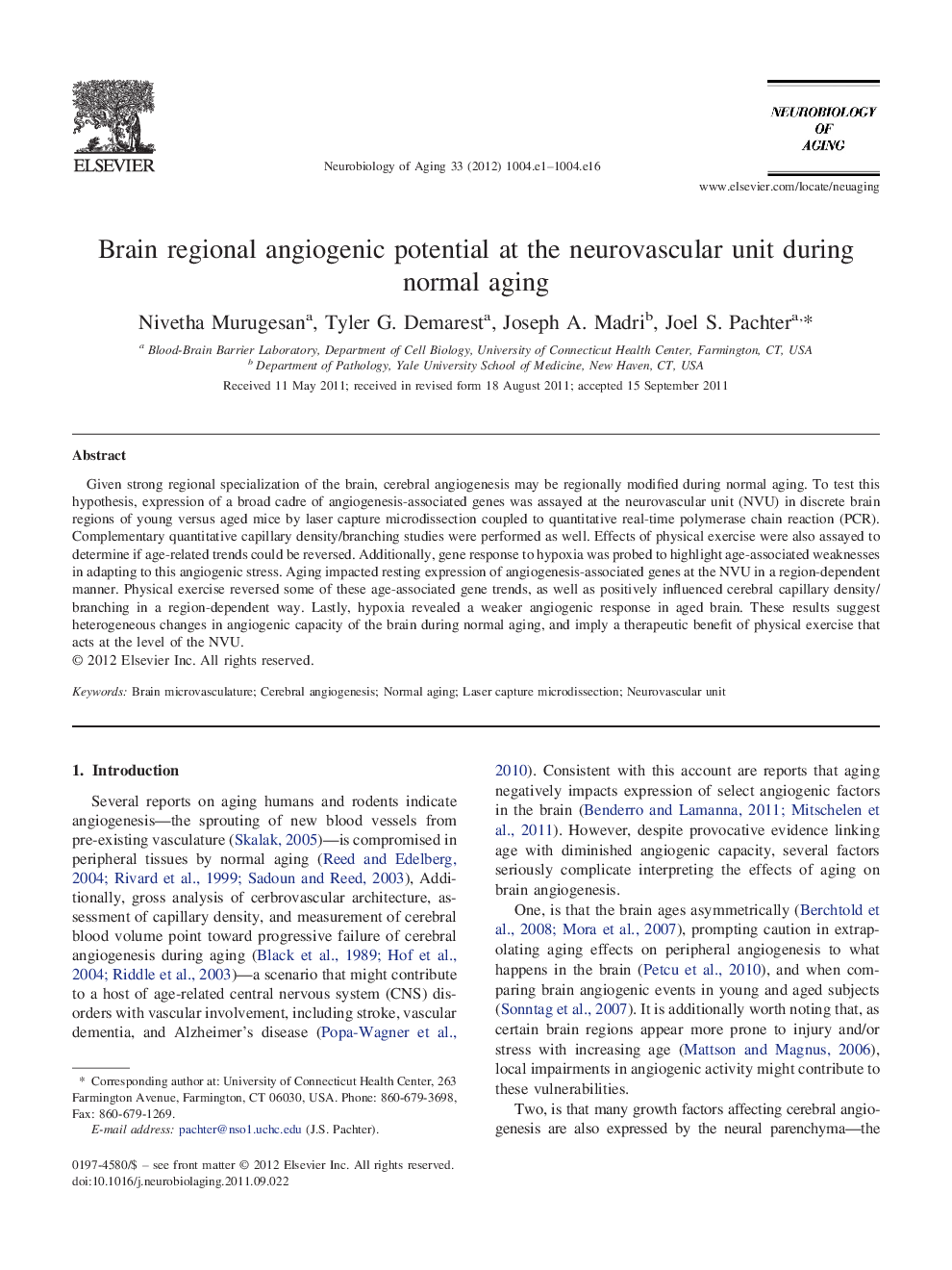| Article ID | Journal | Published Year | Pages | File Type |
|---|---|---|---|---|
| 6809162 | Neurobiology of Aging | 2012 | 16 Pages |
Abstract
Given strong regional specialization of the brain, cerebral angiogenesis may be regionally modified during normal aging. To test this hypothesis, expression of a broad cadre of angiogenesis-associated genes was assayed at the neurovascular unit (NVU) in discrete brain regions of young versus aged mice by laser capture microdissection coupled to quantitative real-time polymerase chain reaction (PCR). Complementary quantitative capillary density/branching studies were performed as well. Effects of physical exercise were also assayed to determine if age-related trends could be reversed. Additionally, gene response to hypoxia was probed to highlight age-associated weaknesses in adapting to this angiogenic stress. Aging impacted resting expression of angiogenesis-associated genes at the NVU in a region-dependent manner. Physical exercise reversed some of these age-associated gene trends, as well as positively influenced cerebral capillary density/branching in a region-dependent way. Lastly, hypoxia revealed a weaker angiogenic response in aged brain. These results suggest heterogeneous changes in angiogenic capacity of the brain during normal aging, and imply a therapeutic benefit of physical exercise that acts at the level of the NVU.
Related Topics
Life Sciences
Biochemistry, Genetics and Molecular Biology
Ageing
Authors
Nivetha Murugesan, Tyler G. Demarest, Joseph A. Madri, Joel S. Pachter,
